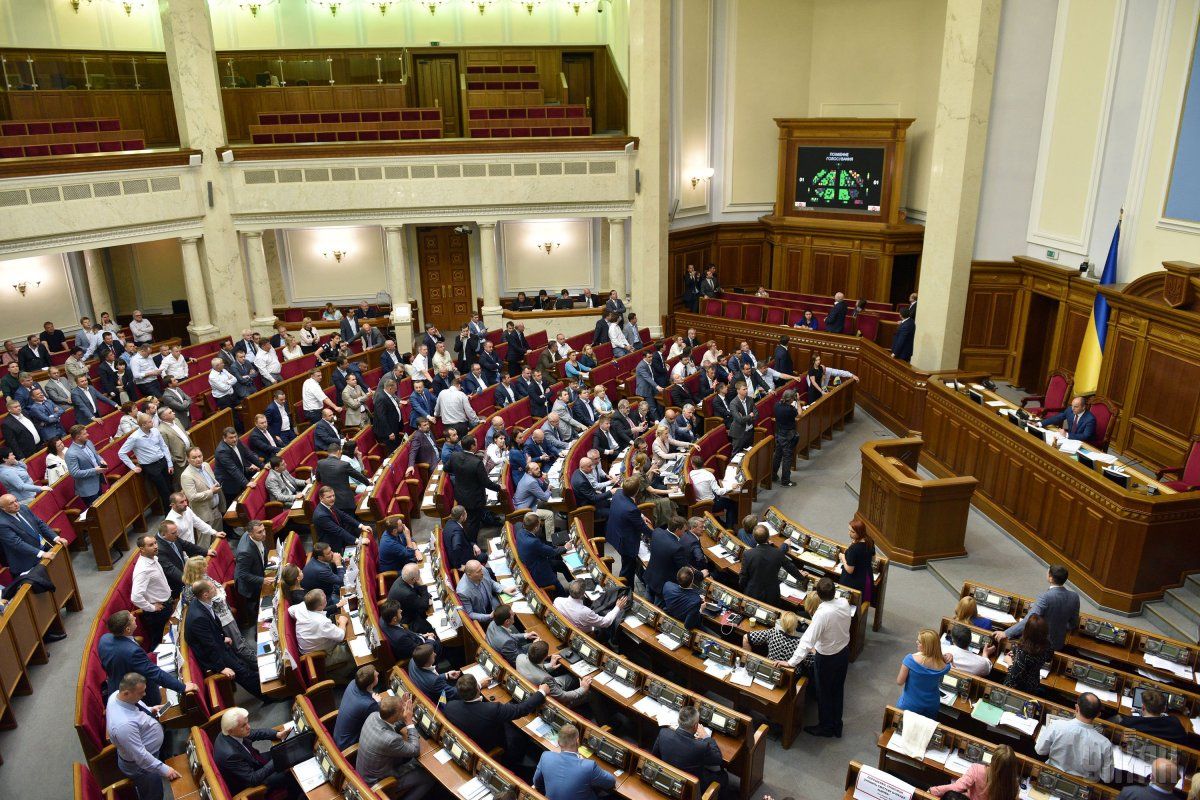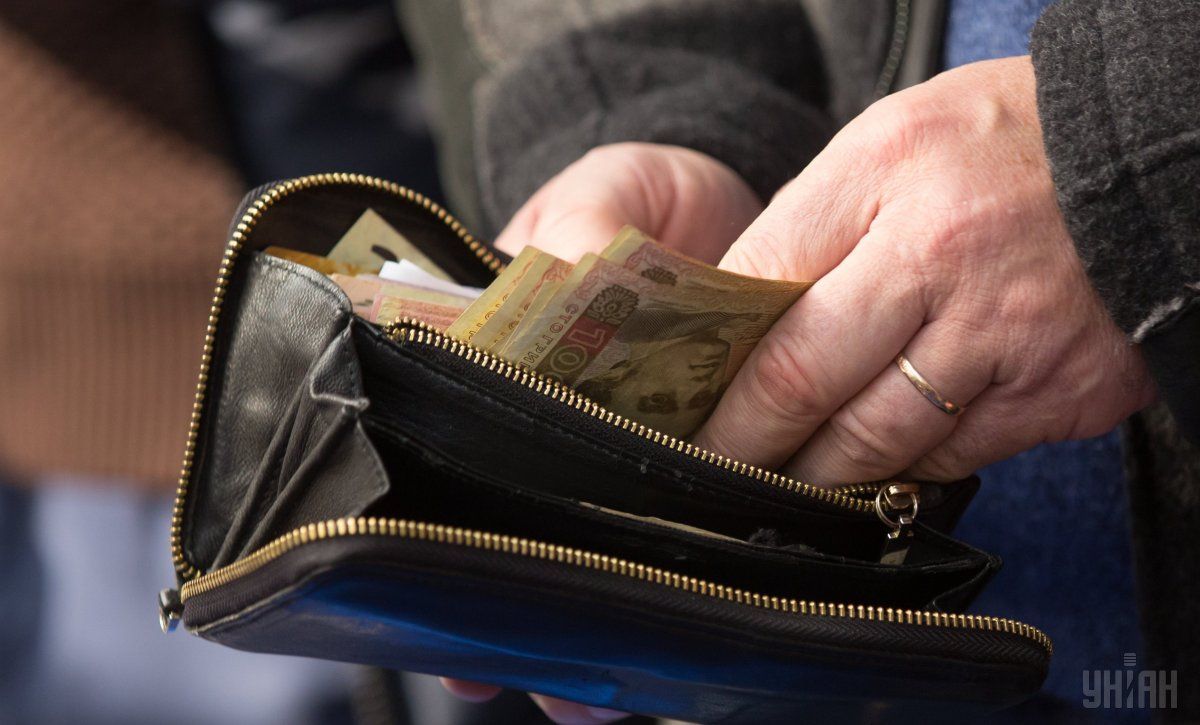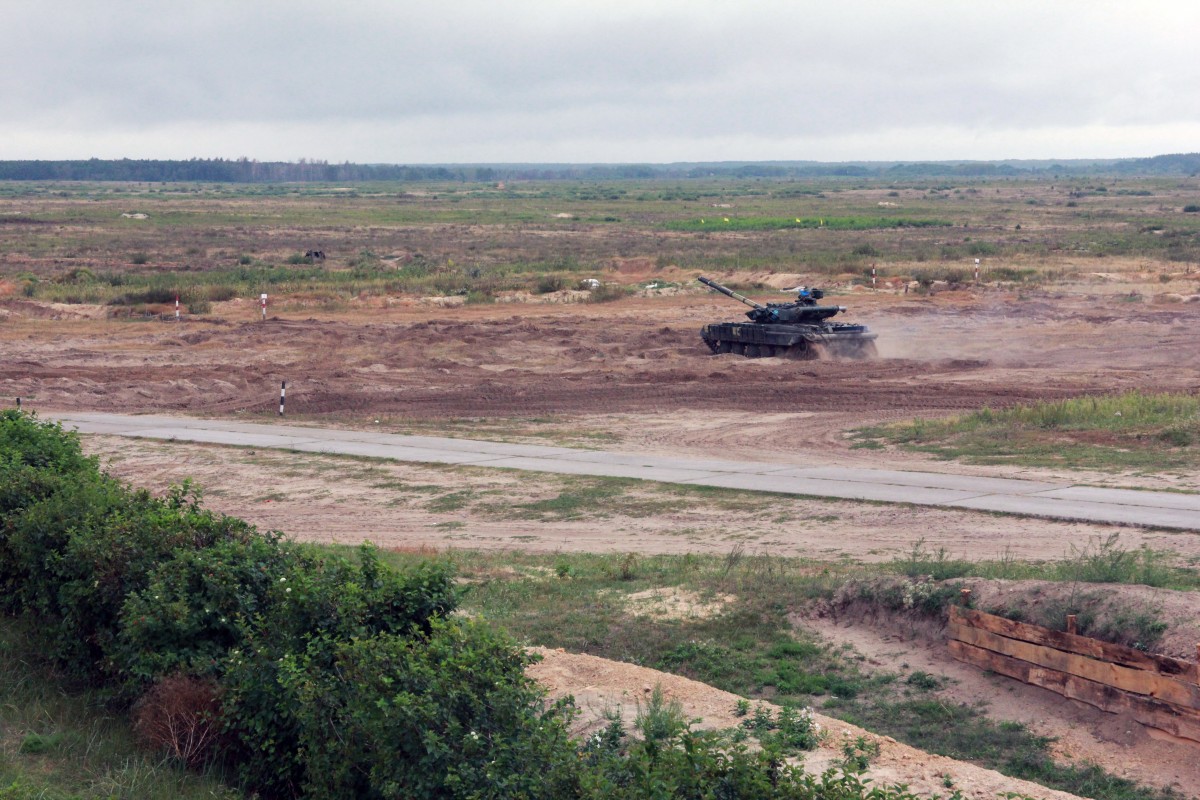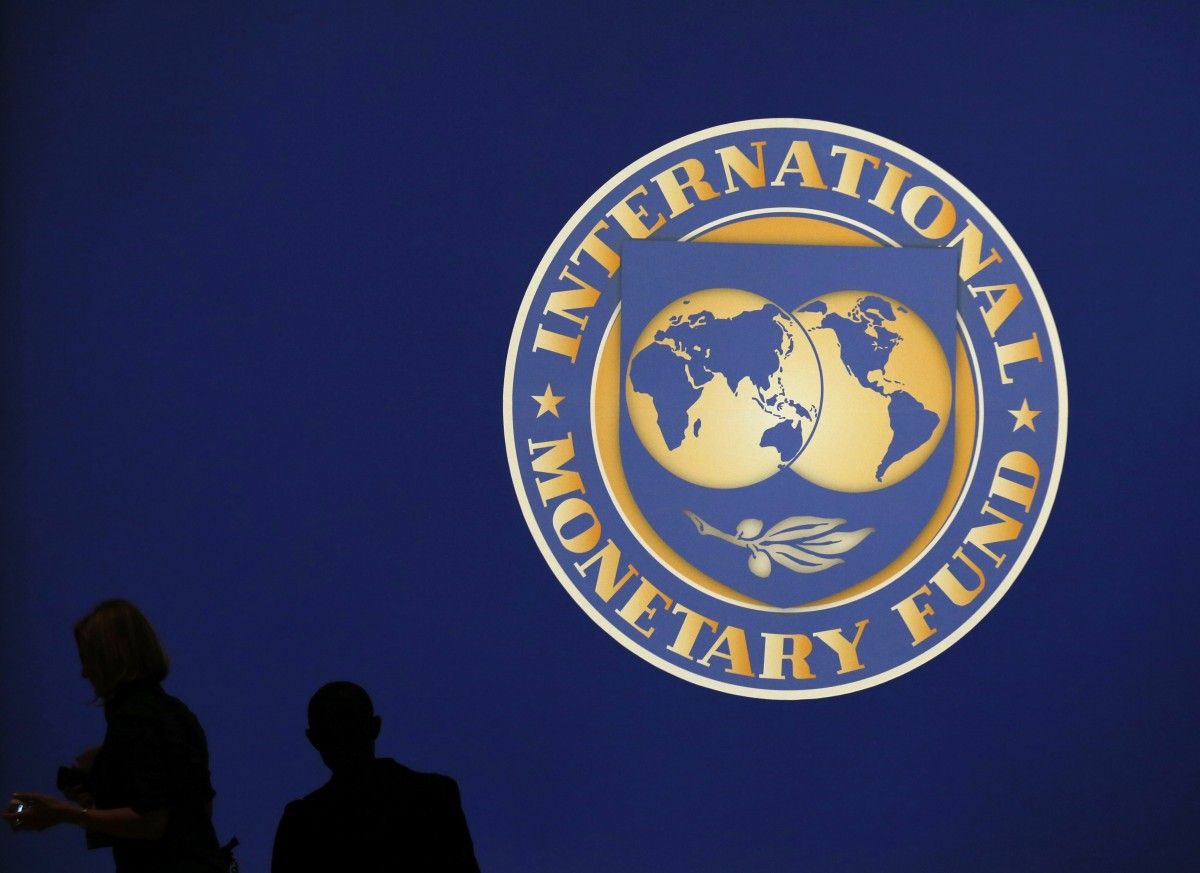
Pensions, army, and debts: key priorities of Ukraine Budget-2018
The Cabinet of Ministers has submitted to the parliament the draft state budget-2018, expecting its approval by December. The experts analyzed the key parameters of the country's budget and reflected on whether the drafted scenario of the country's economic development for the next year is realistic.
The Cabinet of Ministers of Ukraine approved the draft state budget for 2018 and, as required by the Constitution and Budget Code, registered the document in the Verkhovna Rada on September 15. Introducing the project, Prime Minister Volodymyr Groysman called it the "budget for economic development", taking into account key priorities for the next year.
"I think that some populist politicians will start criticizing it as early as today. They criticize - we will build kindergartens, they criticize - we will build roads. I ask Ukrainian citizens to do their thing and make their lives better, and not listen to those who want to make them feel depressed. No depression, only moving forward!" Groysman said.
The main feature of the new budget is the fact that for the first time ever it was prepared based on a three-year budget resolution approved by the government in June this year, which implies accelerating the economy growth in 2018 by 3% and reducing inflation to 7%.
The draft budget for 2018, published on the parliament website, assumes revenue growth by 13.8%, to UAH 877 billion; spending - by 12.7%, to UAH 948 billion, while budget deficit will drop to 2.4% of GDP from 3% in the current year. The state debt ceiling was set at UAH 2.747 trillion, or 84.6% of GDP.
The government proposes to raise from January 1 the minimum wage by 16.3% - up to UAH 3,723. At the same time, the government emphasizes that the increase in costs is compensated solely by the results of economic growth, rather than additional taxes and fees.
Commenting on the draft targets, First Deputy Finance Minister Oksana Markarova stressed that this budget corresponed to the objectives of the program of cooperation with the International Monetary Fund. According to the official, the government hopes for a qualitative discussion with the deputies and the adoption of the document before December.
Deshadowing and economic growth

The structure of the state budget revenues has not changed compared with the previous year, so the key sources for filling the treasury remain the value added tax, excise tax, taxes and fees on personal income, corporate income tax, transfers of the National Bank's profits, and rent for subsoil use.
The government pledges that unlike in previous years, tax legislation will not change "to fit the budget" and expects to keep its promise following the consideration of the draft in parliament.
As for the dynamics of revenues compared with the current year, there are some interesting trends spotted. Additional revenues of UAH 76.5 billion, or two-thirds of the total annual increase in revenues to the state budget, the government expects to receive as a result of growth in VAT payments from imported goods.
Markarova assures that these plans are in no way connected with the expected devaluation of the hryvnia to the dollar, laid down in the budget, at UAH 29.3 / USD at the average annual rate or up to UAH 30.1 / USD at the end of 2018. She says this is solely connected with the growth in the volume of imports of goods and the deshadowing of imports.
"The budget does not set a forex rate. We use the forecast, which was approved by the Cabinet," she stressed. “We are already seeing the results of deshadowing this year. Customs offices are working more transparently. We have focused on equipping customs with scanners and we are now sharing information with neighboring countries. Accordingly, [the revenues will grow] in part due to deshadowing and in part due to the growth in volumes [of imports]."
In addition to the growth of VAT on imports, the government expects an additional UAH 20.5 billion inflow from the pension fee on certain economic operations, mainly due to the collection of a fee for registration of ownership rights for motor vehicles.
A UAH 13.6 billion growth is expected in taxes and fees on personal income, which can be explained by another increase in the minimum wage and the further process of businesses taking their salaries out of the shadow.
Priorities in expenditure: defense, pensions, and roads

In the structure of expenditures of the state budget-2018, the largest share is taken by grants to the Pension Fund and social payments, expenditures on external and internal security and defense, as well as expenses for servicing public debt, education and healthcare. Over 70% of the state budget for the next year is laid down for said purposes.
As for the dynamics compared with the current year, in 2018 the government expects to increase expenditures in a number of spheres, where large-scale reforms have been announced, including those stipulated by obligations to international partners.
Thus, an additional UAH 19.8 billion is proposed to be allocated to the State Motor Roads Agency, thus doubling the agency’s funding - to UAH 37.5 billion.
The Ministry of Finance will receive UAH 17.6 billion in excess of the current year's plan, which is due to the growth in payments for servicing the public debt almost within the same range.
Financing of the Ministry of Defense and its Intelligence Directorate is being increased by UAH 15.5 billion; the Ministry of Internal Affairs – by UAH 10.8 billion, mainly due to the increase in costs for the maintenance of the National Police (by UAH 5.2 billion); the State Emergency Service (by UAH 2.5 billion) and the Administration of the State Border Guard Service (by UAH 1.1 billion).
The additional expenses for healthcare and education reforms in 2018 are estimated at UAH 11.4 billion and UAH 8.6 billion, respectively, as their financing can be stretched for several years, the finance ministry notes.
"The budget provides for spending money on implementing key reforms. Pension reform – in full. Healthcare and education - in the part that we laid down in 2018," Markarova said.
Deficit low but inflation still high
Experts' opinions about the realistic nature of the government scenario for the next financial year were divided. In particular, Head of the Board of the National Bank Bohdan Danylyshyn expressed support for the government's project, noting that the planned deficit of the state budget-2018 is one of the lowest targets over the last 7 years and fits into the Maastricht criteria (the country's financial and economic indicators sufficient to join the Eurozone), while the expected inflation level corresponds to the objectives of the NBU fiscal policy.
At the same time, he noted that the planned GDP growth of 3% is not sufficient for the country, and in the medium term it is advisable to go for 7-8%.
"I would not be wary of creating special funds, from which key programs will be financed, primarily machine-building and aircraft construction, large-scale real estate construction, scientific and technical projects, production of military equipment and dual-purpose products," said Danylyshyn.
Head of the analytical department at Concorde Capital Oleksandr Parashchy called macro targets of the state budget not only realistic, but even conservative compared to expert estimates.
"We expect the economy to grow by 3.5% - the budget says 3%. Our inflation forecast for 2018 is 6.6% - in the budget it’s 7%. We also expect a stronger hryvnia - at UAH 28.5/USD as the year’s average, while the budget foresees the rate at UAH 29.3/USD," he said.
The expert called the positive trends in the new budget the absence of a large-scale change in tax legislation, plans to reduce expenses on housing subsidies, increased costs for repair and construction of roads, lack of funding for Naftogaz of Ukraine and no directly outlined plans to recapitalize state banks and the Deposit Guarantee Fund.
Senior economist at the Center for Economic Strategy Iryna Piontkovska believes that the basis for budgetary targets was a generally realistic macro forecast; however, the government suggests again raising the minimum wage more than the pace of GDP growth to fuel consumer demand.
"The proposed minimum growth of the minimum wage by 16.3% is more moderate than implemented in 2017, but it is possible that this target can be revised for the second reading, as happened in the previous budget period," she noted.
One of the key risks of the state budget-2018 the expert named the risk of failure to fulfill the schedule of proceeds from privatization, which, contrary to its non-fulfillment, was raised to UAH 22.5 billion for several years in a row.
"Over the past two years, privatization has not lived up to expectations. Over the 7 months of 2017, the income amounted to less than UAH 200 million with a target set at UAH 17 billion. The risk of underfulfilment of this plan may require higher volumes of borrowing or a lowering of the budget deficit ceiling," Piontkovska said.
At the same time, chief of Case Ukraine Analytical Group Dmytro Boyarchuk believes that the increased plan of proceeds from privatization, unlike in the previous several years, can be fulfilled this time.
"There is a chance – they have already begun selling regional power companies. They could also sell something from the "eternal" list - Odesa Portside Chemical Plant, Turboatom, or Centrenergo," Boyarchuk said.
The expert named the parameters of the government draft acceptable from the point of view of expert assessments and taking into account the requirements of the International Monetary Fund.
"Our forecasts are close to these targets. For the IMF, a realistic deficit is important, and it remains within the limits outlined by the Fund, that is below 2.5%," Boyarchuk said.

Head of the board of the Institute for Social and Economic Research, former first deputy minister of economy Anatoly Maksiuta believes that the government-expected 3% GDP growth is too optimistic a forecast.
"This year we also expected 3% - today the government expects 1.8%. We planned inflation at 8% - today we expect over 11%. Dragging economic growth is leveled by inflation, and if there is no such growth, then obviously, there will be higher inflation," he predicts.
Adviser to the president of Ukraine, former first deputy minister of finance Ihor Umansky noted that the main problem was not in the budget targets, but in the approach to its drafting. "The practice continues of ‘going with the flow’. The problem is not in the budget, but in the lack of strategy, economic policy and, as a consequence, implementation of this policy to achieve specific goals through such an instrument as a state budget. Therefore, we don’t see any strategy, goals, or ways to achieve them," he stressed.
Varying expert opinions foresee a difficult stage of the budget’s consideration in Parliament. Moreover, parliamentary elections are approaching, so the deputies simply have to be generous to and easy on their voters. Maybe this could contribute to the budget process becoming quick and transparent, to finally break the tradition of watching MPs scuffle on New Year’s Eve.
Olha Hordienko (UNIAN)

